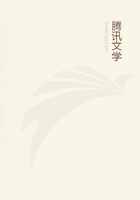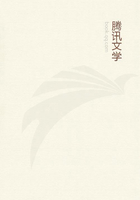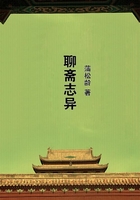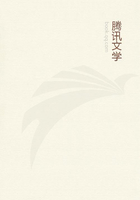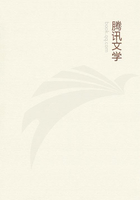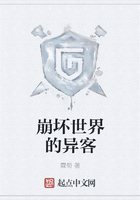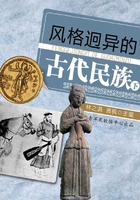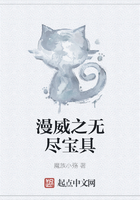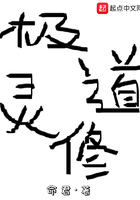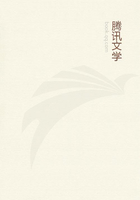To take another example; we open Mr. Max Muller's translation of the Rig-Veda at random, say at page 49. In the second verse of the hymn to the Maruts, Mr. Muller translates, "They who were born together, self-luminous, with the spotted deer (the clouds), the spears, the daggers, the glittering ornaments. I hear their whips almost close by, as they crack them in their hands; they gain splendour on their way." Now Wilson translates this passage, "Who, borne by spotted deer, were born self-luminous, with weapons, war-cries and decorations. I hear the cracking of their whips in their hands, wonderfully inspiring courage in the fight." Benfey has, "Who with stags and spears, and with thunder and lightning, self-luminous, were born. Hard by rings the crack of their whip as it sounds in their hands; bright fare they down in storm." Langlois translates, "Just born are they, self-luminous. Mark ye their arms, their decorations, their car drawn by deer? Hear ye their clamour? Listen! 'tis the noise of the whip they hold in their hands, the sound that stirs up courage in the battle." This is an ordinary example of the diversities of Vedic translation. It is sufficiently puzzling, nor is the matter made more transparent by the variety of opinion as to the meaning of the "deer" along with which the Maruts are said (by some of the translators) to have been born. This is just the sort of passage on which a controversy affecting the whole nature of Vedic mythological ideas might be raised. According to a text in the Yajur Veda, gods, and men, and beasts, and other matters were created from various portions of the frame of a divine being named Prajapati. The god Agni, Brahmans and the goat were born from the mouth of Prajapati. From his breast and arms came the god Indra (sometimes spoken of as a ram), the sheep, and of men the Rajanya. Cows and gods called Visvadevas were born together from his middle. Are we to understand the words "they who were born together with the spotted deer" to refer to a myth of this kind--a myth representing the Maruts and deer as having been born at the same birth, as Agni came with the goat, and Indra with the sheep? This is just the point on which the Indian commentators were divided. Sayana, the old commentator, says, "The legendary school takes them for deer with white spots; the etymological school, for the many-coloured lines of clouds". The modern legendary (or anthropological) and etymological (or philological) students of mythology are often as much at variance in their attempts to interpret the traditions of India.
Muir, Sanskrit Texts, 2nd edit., i. 16.
Max Muller, Rig-Veda Sanhita, trans., vol. i. p. 59.
Another famous, and almost comic, example of the difficulty of Vedic interpretation is well known. In Rig-Veda, x. 16, 4, there is a funeral hymn. Agni, the fire-god, is supplicated either to roast a goat or to warm the soul of the dead and convey it to paradise. Whether the soul is to be thus comforted or the goat is to be grilled, is a question that has mightily puzzled Vedic doctors. Professor Muller and M. Langlois are all for "the immortal soul", the goat has advocates, or had advocates, in Aufrecht, Ludwig and Roth. More important difficulties of interpretation are illustrated by the attitude of M. Bergaigne in La Religion Vedique, and his controversy with the great German lexicographers. The study of mythology at one time made the Vedas its starting-point. But perhaps it would be wise to begin from something more intelligible, something less perplexed by difficulties of language and diversities of interpretation.
Muir, v. 217.
In attempting to criticise the various Aryan myths, we shall be guided, on the whole, by the character of the myths themselves.
Pure and elevated conceptions we shall be inclined to assign to a pure and elevated condition of thought (though such conceptions do, recognisably, occur in the lowest known religious strata), and we shall make no difficulty about believing that Rishis and singers capable of noble conceptions existed in an age very remote in time, in a society which had many of the features of a lofty and simple civilisation. But we shall not, therefore, assume that the hymns of these Rishis are in any sense "primitive," or throw much light on the infancy of the human mind, or on the "origin" of religious and heroic myths. Impure, childish and barbaric conceptions, on the other hand, we shall be inclined to attribute to an impure, childish, and barbaric condition of thought; and we shall again make no difficulty about believing that ideas originally conceived when that stage of thought was general have been retained and handed down to a far later period. This view of the possible, or rather probable, antiquity of many of the myths preserved in the Brahmanas is strengthened, if it needed strengthening, by the opinion of Dr. Weber. "We must indeed assume generally with regard to many of those legends (in the Brahmanas of the Rig-Veda)that they had already gained a rounded independent shape in tradition before they were incorporated into the Brahmanas; and of this we have frequent evidence in the DISTINCTLY ARCHAIC CHARACTEROF THEIR LANGUAGE, compared with that of the rest of the text." History of Indian Literature, English trans., p. 47.
We have now briefly stated the nature and probable relative antiquity of the evidence which is at the disposal of Vedic mythologists. The chief lesson we would enforce is the necessity of suspending the judgment when the Vedas are represented as examples of primitive and comparatively pure and simple natural religion. They are not primitive; they are highly differentiated, highly complex, extremely enigmatic expressions of fairly advanced and very peculiar religious thought. They are not morally so very pure as has been maintained, and their purity, such as it is, seems the result of conscious reticence and wary selection rather than of primeval innocence. Yet the bards or editors have by no means wholly excluded very ancient myths of a thoroughly savage character. These will be chiefly exposed in the chapter on "Indo-Aryan Myths of the Beginnings of Things," which follows.

